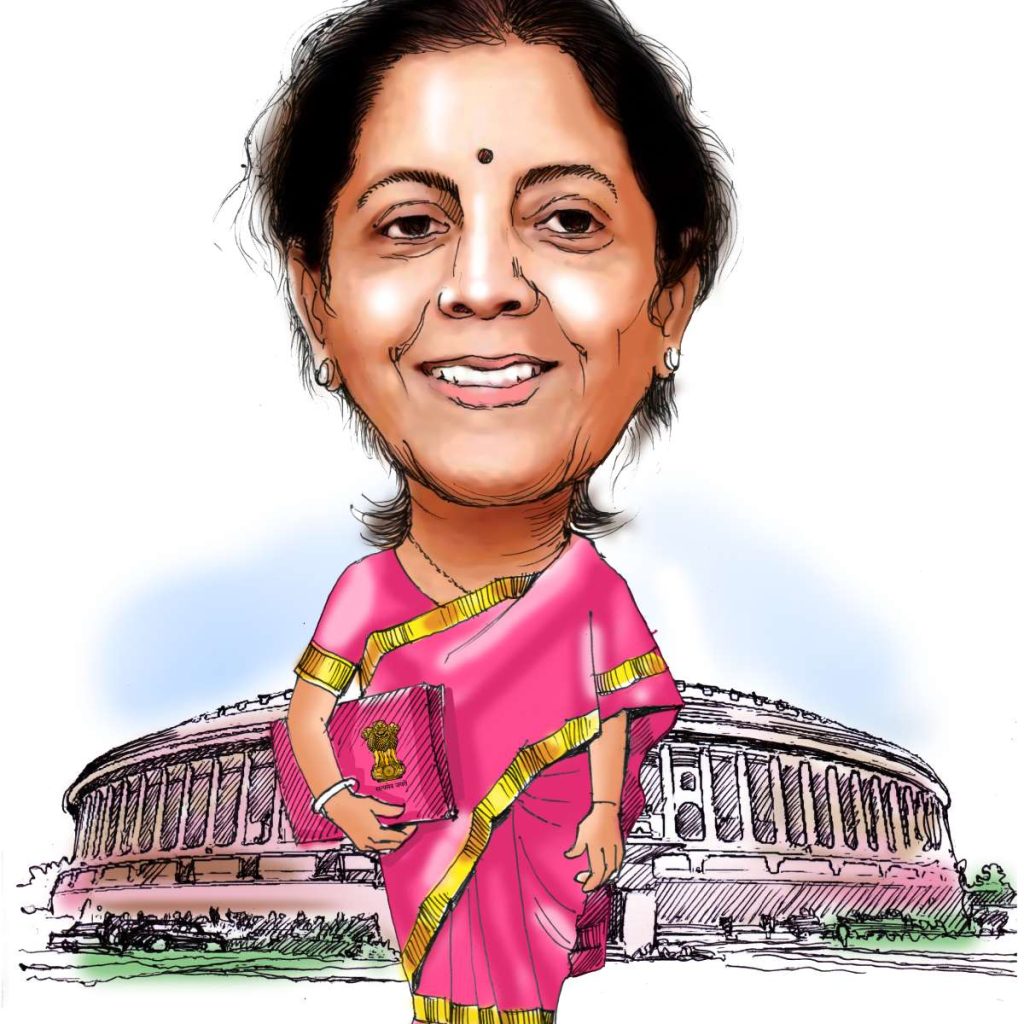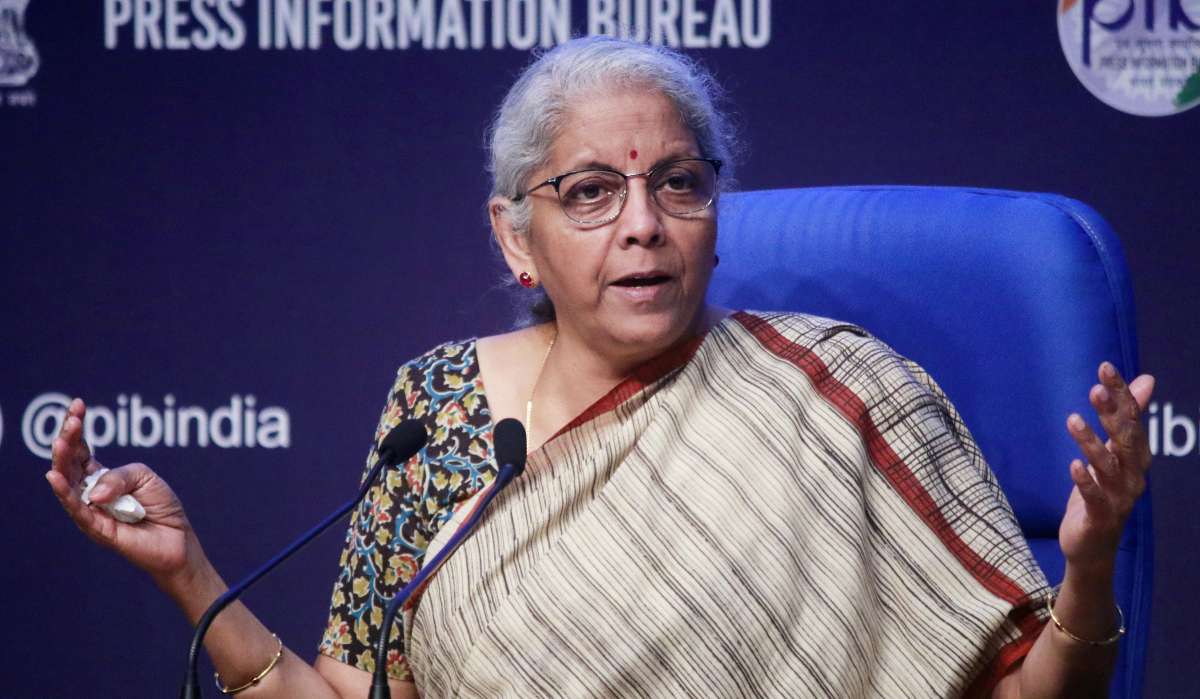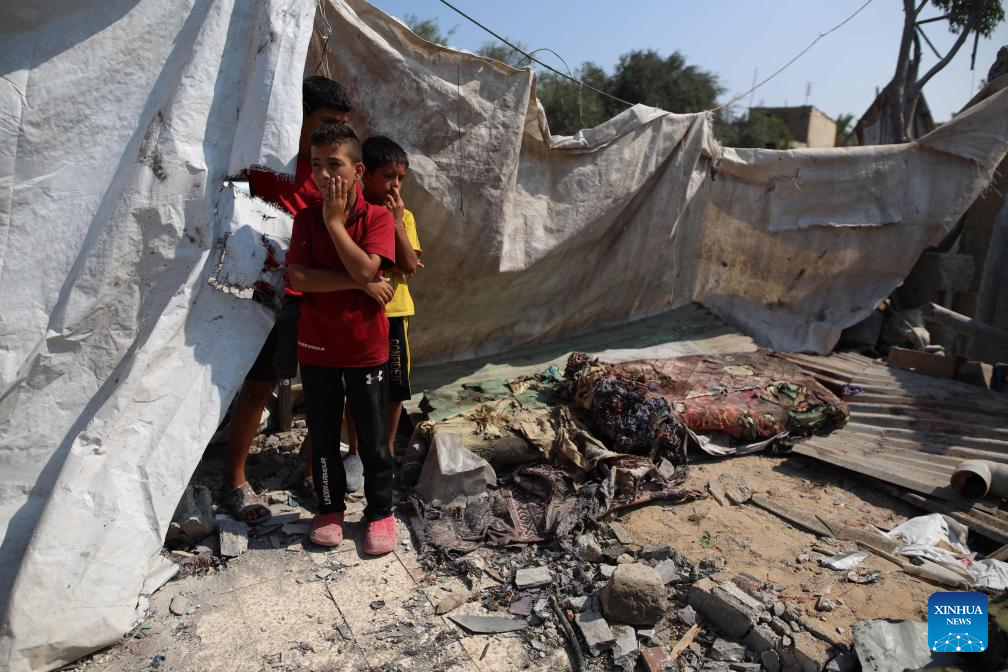Govt proposed a total outlay of over Rs 60,000 crore for various projects in Bihar, which is due for assembly polls next year, and Rs 15,000 crore for Andhra Pradesh…reports Asian Lite News
Union Finance Minister Nirmala Sitharaman on Tuesday announced significant financial measures for Bihar and Andhra Pradesh, ruled by key NDA allies –Nitish Kumar-led JD (U) and Chandrababu Naidu’s TDP– which are providing critical support to the BJP-led government at the Centre. This is the first budget of the Modi 3.0 government after the general elections.
Announcing a host of developmental projects, Sitharaman proposed a total outlay of over Rs 60,000 crore for various projects in Bihar, which is due for assembly polls next year, and Rs 15,000 crore this fiscal for the development of Andhra Pradesh’s capital city, a dream project of Chief Minister Naidu.
The support to Bihar is in the form of capital projects, and not a subsidy or cash dole. For Andhra Pradesh, the allocation of Rs 15,000 crore in financial aid is through multilateral agencies. A similar request for support to Bihar will also be expedited, Sitharaman said.
The focus on Bihar and Andhra Pradesh is especially significant as both Kumar and Naidu helped Prime Minister Narendra Modi and the BJP-led National Democratic Alliance (NDA) to come back to power for a record third term. With 240 seats, the BJP emerged as the single-largest party in the Lok Sabha elections but fell short of the 272 majority mark on its own. Among the NDA constituents, TDP and JD (U) are the largest contributors to the alliance with 16 and 12 Lok Sabha seats, respectively.
While both JD(U) and TDP have been strongly pitching for special category status for the states, Nitish and Naidu welcomed the special package in the Union budget 2024-25.
Noting that the “special help” announced in the budget addressed the state’s concerns, Chief Minister Kumar told reporters in Patna: “We had proposed that if special status wasn’t feasible for technical reasons, Bihar should receive special assistance (vishesh madat) from the Centre in another form, which has been announced today.” “Haan, bhai (yes, of course),” the Bihar chief minister said when asked if he was happy with the Union budget.
Thanking the Central government for recognising the needs of the state in the budget by focusing on the capital city, Polavaram project, industrial nodes and development of backward areas, Naidu said the support from the Centre will go a long way towards rebuilding Andhra Pradesh.
“On behalf of the people of Andhra Pradesh, I thank Prime Minister Modi and Union Finance Minister Sitharaman for recognising the needs of our state and focusing on a capital, Polavaram, industrial nodes and development of backward areas in AP (Andhra Pradesh) in the union budget of FY 24-25,” said Naidu in a post on X.
With NDA allies receiving special attention in the budget, the Opposition termed it as a “kursi bachao budget” driven by political compulsions and claimed that it ignored opposition-ruled states in a bid to “appease” BJP’s allies.
TMC national general secretary Abhishek Banerjee told reporters in New Delhi: “Just to save their government, they have allocated special packages to Bihar and Andhra Pradesh. We don’t have any problem with any state getting any allocation, but why should Bengal be deprived?” Recalling Bengal BJP leader Suvendu Adhikari’s words “Jo Hamare Sath, Hum Unke Saath,” (We will be on the side of those who support us), the Diamond Harbour MP said, “What he said has been proved today.”
Allocations to key sectors hiked
Sitharaman presented the Union Budget 2024-25 on Tuesday, outlining a detailed financial roadmap aimed at driving economic growth and ensuring fiscal stability.
The budget reveals a comprehensive picture of government revenues and expenditures, highlighting major allocations to key sectors and schemes.

The revenue to the government is generated from multiple sectors. Income tax contributes 19 per cent, borrowings and liabilities stand as the largest source at 27 per cent, and GST along with other taxes accounts for 18 per cent.
Corporation taxes contribute 17 per cent, followed by non-tax receipts at 9 per cent, customs at 4 per cent, excise duty at 5 per cent, and non-debt capital receipts at 1 per cent.
On the expenditure side, the budget outlines significant allocations to various public sectors. Interest payments consume 19 per cent of the total expenditure, central sector schemes account for 16 per cent, and states’ tax devolution takes up 21 per cent.
Subsidies represent 6 per cent of the spending, while defence expenditures stand at 8 per cent.
The Finance Commission and other transfers take up 9 per cent, centrally sponsored schemes another 8 per cent, pensions 4 per cent, and other expenses 9 per cent.
In terms of sector-specific allocations, defence receives the highest allocation at Rs 4,54,773 crore. Rural development is allocated Rs 2,65,808 crore, reflecting the government’s focus on boosting rural economies.
Agriculture is set to receive Rs 1,51,851 crore, while home affairs are allocated Rs 1,50,983 crore, underscoring the importance of internal security.
ALSO READ-India to Partner with Private Sector on Small Nuclear Reactors








